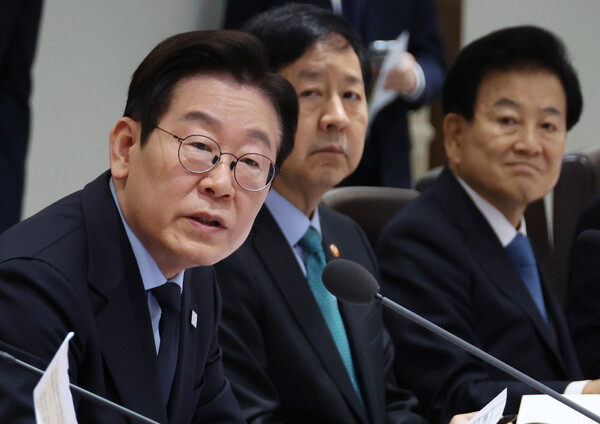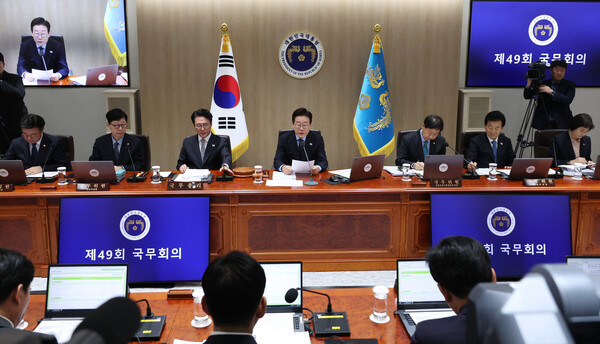Calls for legal measures against discriminatory rhetoric and misinformation; stresses balanced approach to carbon neutrality and inflation control

President Lee Jae-myung declared that discriminatory and hate-driven rhetoric will be treated as criminal behavior, emphasizing that such acts must no longer be tolerated in Korean society.
During a Cabinet meeting held at the Presidential Office in Yongsan on the 11th, President Lee stated that “racism, xenophobia, and misinformation campaigns are no longer matters of debate but direct threats to democracy and public safety.”
He noted that hate expression and fabricated information are rapidly spreading online, particularly on social media, accelerating division and anxiety within society.
“This goes far beyond the scope of free expression. It is clearly a criminal act,” he said. “We must establish stronger legal mechanisms to prevent and punish hate speech and false information.”
He also stressed that law enforcement must actively intervene, calling on police to enforce relevant measures with diligence.
President Lee urged political parties to cooperate, stating, “This is not an issue that any one side can solve alone. The entire political sphere must act together to protect democratic values.”
Regarding the recently finalized 2035 Nationally Determined Contribution (NDC), which calls for a 53–61% reduction from 2018 emission levels, President Lee emphasized that the energy transition toward carbon neutrality is unavoidable.
“Even if the process requires sacrifice, the cost of neglecting it will be far greater,” he said. “We need a practical balance that considers both the national economic environment and public burden.”

He instructed the government to closely monitor challenges that businesses and citizens may face and to provide support where necessary, especially in renewable energy expansion and emissions management.
President Lee also highlighted the importance of stabilizing consumer prices, describing it as a priority for improving living conditions and boosting the economy's resilience.
He pointed specifically to rising prices and “shrinkflation”—maintaining product prices while reducing content—as issues requiring regulatory response.
“We must address deceptive pricing practices and strengthen oversight in the market,” he said.
He also called on the Fair Trade Commission to monitor and respond to any signs of collusion or price manipulation.

